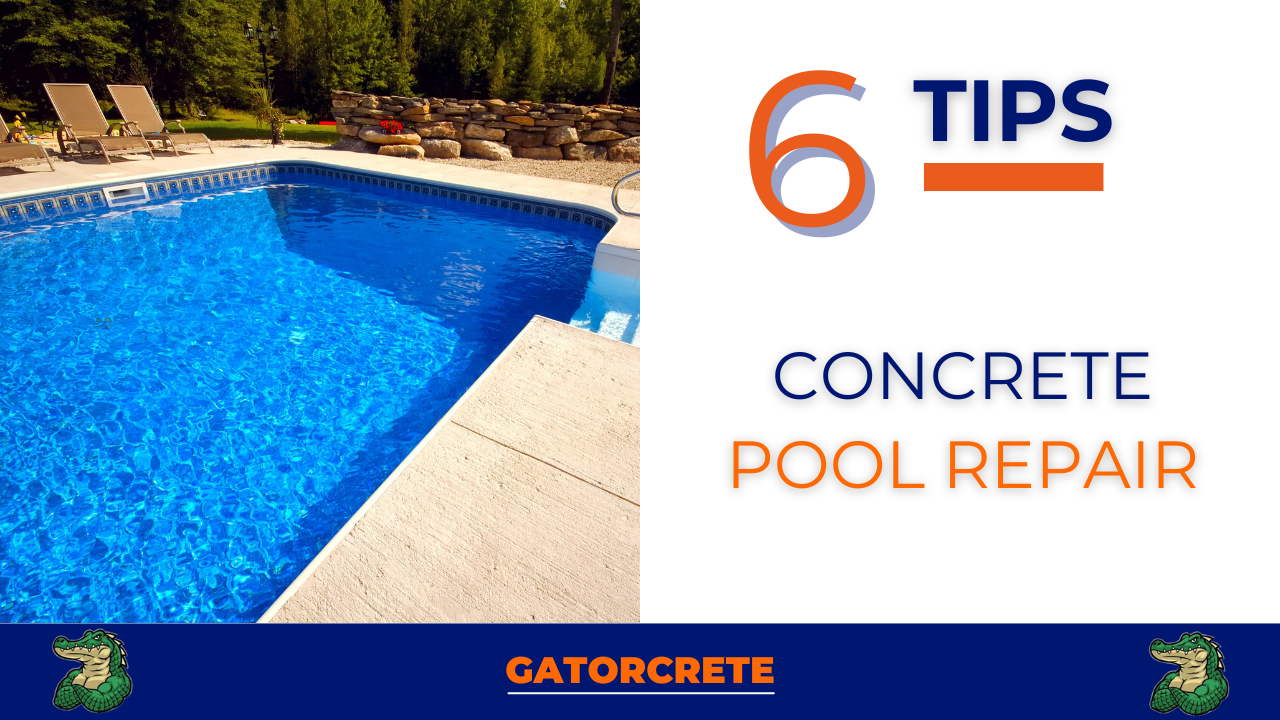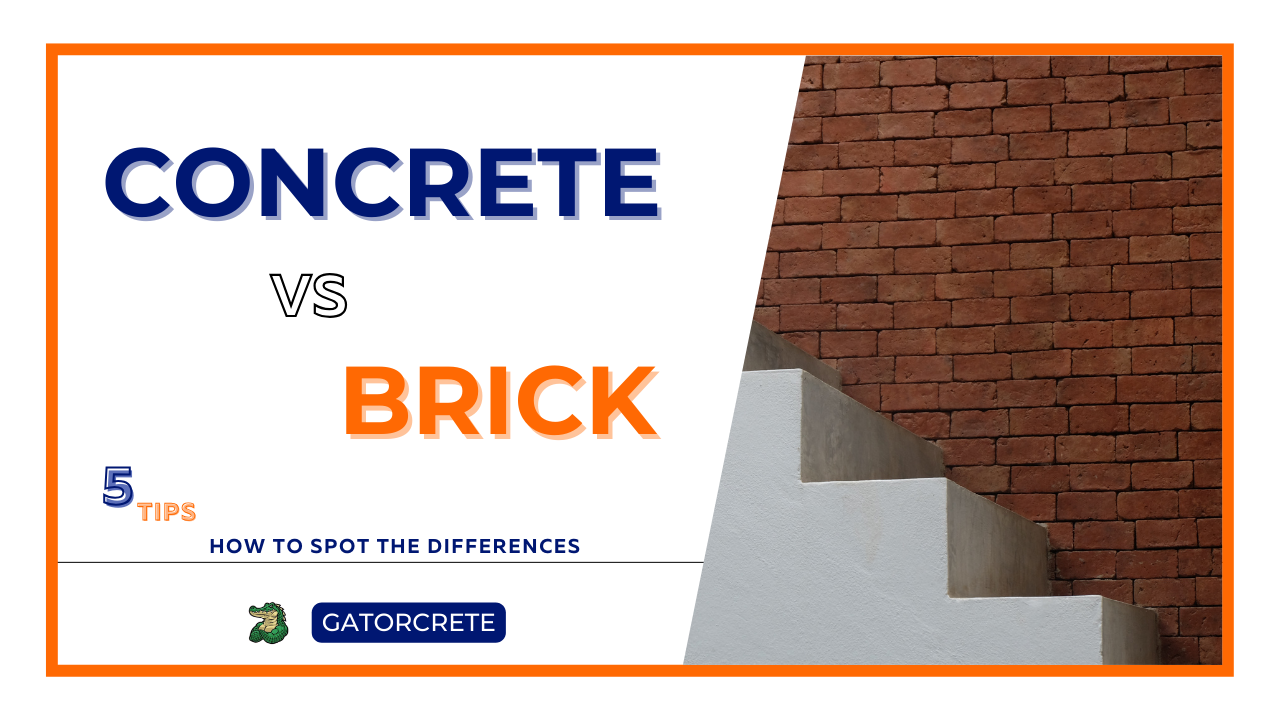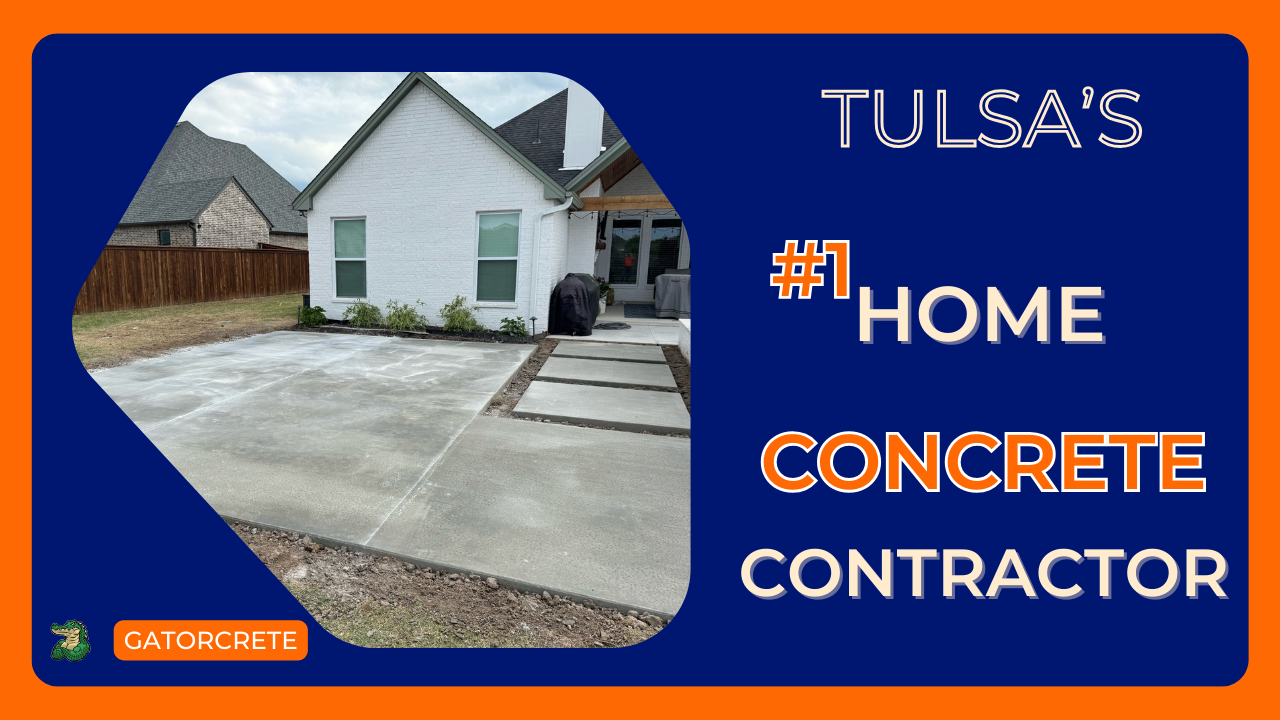Does your once-pristine pool deck resemble a spiderweb of cracks? Don’t let damaged concrete detract from the joy of your swimming pool!
Cracks, while unsightly, can also compromise the structural integrity of your pool. The good news? Gator Crete is here to help! We are professional concrete contractors so we thoroughly understand the subject.
Many pool concrete repairs are within the grasp of DIY enthusiasts. This blog will guide you through the easy steps to tackle common pool deck and coping repairs. We will cover everything from identifying the culprits behind the cracks to patching them up like a pro.
We’ll also touch on the materials you’ll need and provide a ballpark figure for repair costs. So, grab your toolbox and get ready to restore your pool’s beauty and functionality in no time!
What Causes Cracks in Pool Concrete?
Cracked pool concrete doesn’t just happen overnight. A variety of factors can contribute to this unsightly and potentially problematic issue. Improper installation during the initial construction phase can leave the concrete vulnerable to future cracking.
Ground movement is another cause. Sometimes soil moisture content fluctuates. Of course, even seismic activity may be to blame. This is especially a concern for residents of earthquake-prone areas like Oklahoma after recent tremors.
Changes in groundwater levels can also put stress on the pool structure, leading to cracks. Don’t forget about the constant battle with water pressure itself! Everyday wear and tear from pool usage puts pressure on the concrete, and so do chemical imbalances in the pool water, which can weaken the material over time.
Even our climate plays a role – here in Tulsa, Oklahoma, the freeze-thaw cycle of harsh winters followed by hot summers can contribute to concrete deterioration. De-icing salts used in colder regions can further exacerbate the problem.
Beyond environmental factors, construction methods also significantly impact the likelihood of cracks. A lack of properly placed control joints, which are strategically placed saw cuts that allow for controlled movement and prevent random cracking, is a common culprit.
Similarly, inadequate reinforcement with steel rebar or using weak concrete in the initial mix can leave the pool structure more susceptible to cracking under pressure.
- Construction Issues: Improper installation techniques
- Too few control joints (expansion cuts)
- Lack of reinforcement with steel rebar
- Weak concrete mix used during construction
- Environmental Factors: Ground movement due to:
- Changes in soil moisture content
- Earthquakes (especially relevant for Oklahoma)
- Changes in groundwater levels
- Water pressure from pool usage
- Chemical imbalances in pool water leading to deterioration
- Climate Factors: Freeze-thaw damage caused by cold winters and hot summers
- De-icing salts used in colder climates
How to Repair a Concrete Pool
In general, there are 2 options. You can use a professional concrete contractor or do it yourself.
However, before diving in (literally!), we should take something into consideration. Pool repairs involve working with water and potentially hazardous chemicals.
If you’re unsure about your skills or comfort level, contacting a reputable concrete pool repair company like Gator Crete can be the simplest solution. Our experienced staff can handle the job efficiently, saving you time, worry, and hassle. We’ll leave you with a professional and long-lasting repair.
For the brave souls ready to take on the challenge themselves, here’s a basic outline for DIY pool deck and coping repairs. The most crucial first step involves completely draining the pool water below the level of the cracks you’ll be repairing. This ensures a dry work surface and prevents the patching materials from washing away.
DIY Pool Deck and Coping Repair Steps:
- Completely drain the pool water below the level of the cracks.
- Clean and prep the crack by removing any loose debris or dirt.
- Depending on the size and severity of the crack, choose the appropriate crack filler or patching material.
- Apply the patching material according to the manufacturer’s instructions, which may involve mixing and troweling the compound.
- Allow the patch to cure completely before refilling the pool.
How to Repair a Pool Deck & Pool Coping
Repairing cracks in your pool deck is a manageable DIY project. Similar to patching the coping (the lip around the pool), the process involves cleaning the cracks, applying a suitable filler, and allowing it to cure. However, unlike repairs within the pool itself, underwater applications require specialized waterproof patching materials and potentially extra steps for sealing.
For uneven pool decks, a different approach is needed. Here, you might consider mudjacking, a process where a grout mixture is pumped beneath the uneven slabs to lift and level them.
Consulting a professional for uneven concrete is generally recommended for a more permanent and structurally sound solution.
What Materials Do I Need?
The specific materials you’ll need for your pool deck and coping repairs depend on the nature and severity of the damage.
For minor cracks, a simple concrete crack filler or patching compound might suffice. Larger cracks or uneven slabs may require a more robust epoxy-based patching material or even a concrete mix for substantial repairs.
Some pool repair projects also benefit from the use of a concrete bonding agent, which strengthens the bond between the existing concrete and the new patching material.
For your convenience, pre-mixed repair kits are available that often contain all the essential materials you’ll need for a particular type of fix.
Materials by Pool Deck Repair Type:
- Minor Crack Repair: Concrete crack filler or patching compound
- Mason’s chisel (for widening cracks if needed)
- Masonry brush
- Safety gear (eye protection, gloves)
- Larger Crack or Uneven Slab Repair: Epoxy-based patching material or concrete mix
- Concrete bonding agent (optional)
- Application tools (trowel, margin trowel)
- Safety gear (eye protection, gloves, respirator if using dusty materials)
When Should I Get Professional Help?
If the cracks are extensive, deep, or accompanied by movement of the concrete slabs, it’s best to call in the reinforcements. Similarly, repairs that involve the pool structure itself or require working underwater are best left to experienced pool technicians. Remember, your pool is an investment, and professional repairs ensure a structurally sound and long-lasting solution. Don’t hesitate to consult a professional like Gator Crete if:
- Cracks are large, deep, or accompanied by slab movement.
- You suspect damage to the pool structure itself.
- Repairs are needed within the pool or underwater.
- You lack the confidence or experience for DIY repairs.
Call a Professional Pool Repair Company If:
- Cracks are extensive or accompanied by movement.
- Repairs involve the pool structure.
- Repairs are underwater.
- You lack DIY experience or confidence.
How Much Does a Pool Repair Cost?
The cost of repairing your concrete pool can vary depending on several factors. The size and severity of the damage as well as the chosen repair materials play a role. Whether you opt for DIY or professional help also matters.
Generally, smaller crack repairs are more affordable, while extensive repairs or those involving the pool structure itself will incur higher costs. For a more accurate estimate, contact us. We offer consultations and estimates, allowing you to make informed decisions about your pool’s repair needs and budget.



